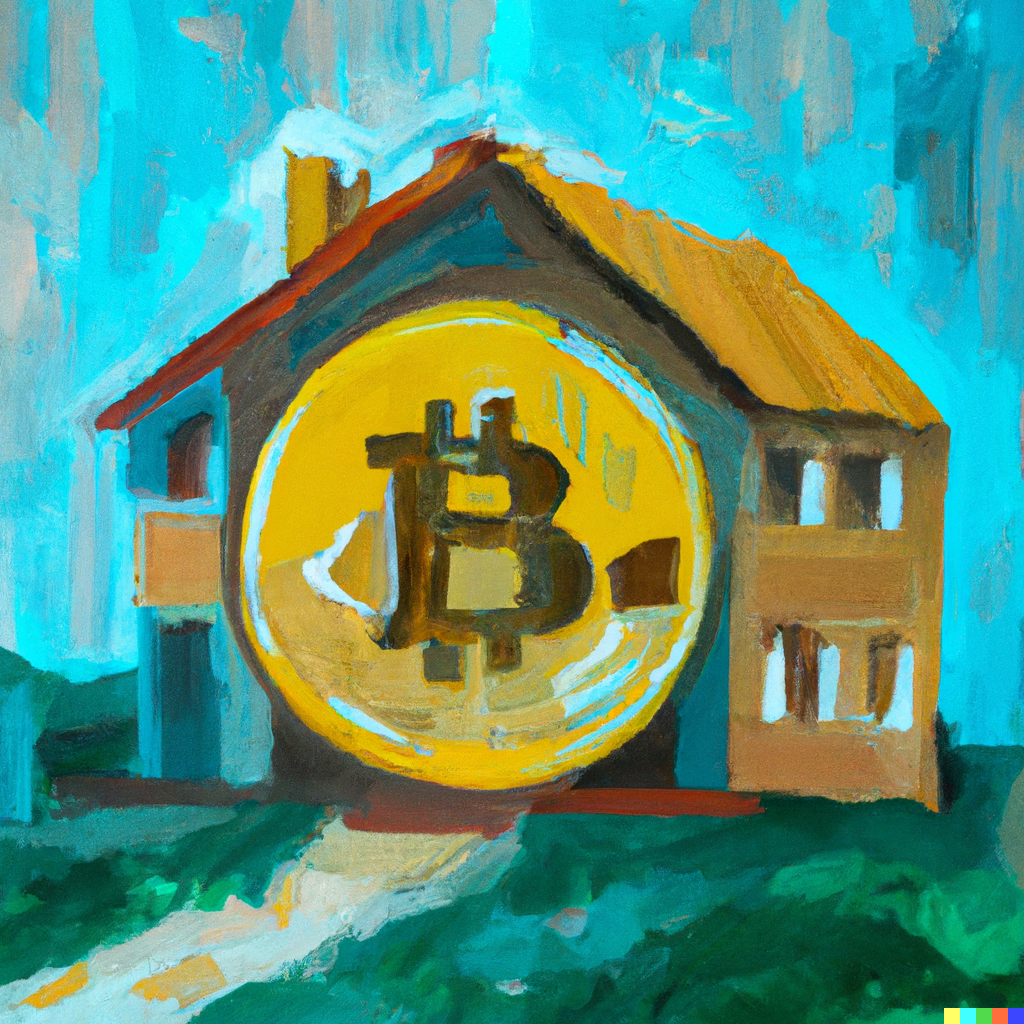Bitcoin & Homeownership: A New Path to Property Ownership in the African American Community

Bitcoin and blockchain technology have gained significant traction in the past decade as innovative tools capable of revolutionizing various sectors of the economy. One promising area where these innovations have potential implications is in addressing the wealth gap through home ownership. For marginalized and lower-income communities, systemic barriers often prevent them from accessing the opportunities for wealth accumulation that real estate can provide. However, Bitcoin, as a decentralized digital currency, offers an alternative and independent form of capital accumulation.
The dream of homeownership is one that many people share all over the world, but it is a dream that has remained largely elusive for African Americans for decades. According to a report by the Urban Institute, the homeownership rate for African Americans is currently at 42.3%, significantly lower than the national average of 64.2%. But, with the advent of blockchain technology and cryptocurrencies like Bitcoin, there is now an opportunity for the African American community to take control of their property ownership and experience the financial benefits that come with it. In this blog post, we will discuss how Bitcoin and blockchain technology can potentially revolutionize the real estate industry and provide new opportunities for property ownership within the African American community.
How Bitcoin and blockchain technology work
To fully understand how Bitcoin and blockchain technology can revolutionize the real estate industry, it is important to understand how they work. Bitcoin is a type of digital currency that operates independently of any central authority, such as a government or financial institution. It can be used for transactions between parties online and is stored in a digital wallet. Bitcoin transactions are recorded on a decentralized public ledger called the blockchain. The blockchain is distributed across a network of computers, making it virtually impossible to hack or alter.
The advantages of blockchain technology in real estate transactions are numerous. Lamar Wilson, Founder of Black Bitcoin Billionaire mentioned during the Genesis Block: Bitcoin is Soaring episode on Clubhouse about the vacillation of real estate prices of homes in the African American community of St. Louis, Missouri. One of the biggest advantages is that blockchain has the potential to make property transactions more secure and transparent by enabling all parties in the transaction to access the same information. Blockchain technology also has the potential to make property transactions faster and more cost-effective by reducing the need for intermediaries, such as banks, lawyers, and real estate agents. By eliminating intermediaries, costs associated with fees and commissions can be reduced drastically.
The potential for Bitcoin to revolutionize the mortgage industry
Bitcoin and other cryptocurrencies can also revolutionize the mortgage industry by making it easier for people to obtain mortgages, particularly for those who have been historically underserved by the traditional banking system. Bitcoin can be used as collateral for mortgages, offering an alternative for those who don't qualify for traditional mortgages due to poor credit or insufficient income. Black Bitcoin Billionaire is not recommending you buy into real estate investment, mortgages or Bitcoin. Please seek the assistance of a financial professional or fiduciary before making any investment decisions. Additionally, digital assets can be used to send and receive payments across borders, making it easier for people to buy properties outside of their home countries.
The role of Bitcoin and blockchain technology in closing the wealth gap
Digital assets are not dependent on traditional financial systems or intermediaries, which means that they can be used for transactions without the need to have a bank account or access to credit. This makes them a viable alternative for people who have been historically excluded from the economy. Through dollar cost averaging or using Bitcoin to purchase property, people who were previously shut out of homeownership can now build wealth and take control of their financial futures. This has the potential to close the wealth gap and provide new opportunities for those who have been marginalized in the past.
Marginalized communities often bear the brunt of economic crises, as they are more vulnerable to the volatility of global markets. However, Bitcoin's scarcity and its decentralized nature make it an attractive investment option to offset inflation. As such, marginalized communities can potentially use Bitcoin to save and invest in homes as a long-term strategy to build wealth, regardless of the larger economic environment.
Moreover, blockchain technology also offers significant potential for streamlining the real estate process. Traditionally, inefficiencies in the real estate industry have resulted in high transaction fees, lengthy timelines, and limited access to information. However, blockchain technology can potentially solve these issues through its ability to store and validate information in a decentralized and secure manner. As a result, technologies such as smart contracts can potentially reduce transaction fees, speed up the transaction process, and provide greater transparency about real estate transactions to all parties involved.

Potential challenges and opportunities for adoption
While the benefits of Bitcoin and blockchain technology in the real estate industry are numerous, there are also some challenges to adoption that need to be addressed. First and foremost, the lack of regulation in the cryptocurrency space can make some people hesitant to adopt these technologies. Additionally, there are technical challenges that need to be addressed, such as the need for more user-friendly interfaces for Bitcoin wallets and applications. However, these challenges can be overcome with investment, education, and innovation. If overcome, the opportunities that Bitcoin and blockchain technology present for property ownership in the African American community are vast.
The potential for Bitcoin and blockchain technology to revolutionize the real estate industry and provide new opportunities for property ownership within the African American community is undeniably significant. Despite some challenges and concerns, the benefits of these technologies in terms of security, transparency, and cost-effectiveness are too great to ignore. By using Bitcoin to purchase property, African Americans can take control of their financial futures and join the growing global movement towards a more decentralized and inclusive economy. The time is now to start exploring the potential of Bitcoin and blockchain technology in the real estate industry and take advantage of the new opportunities they present.
In conclusion, while Bitcoin and blockchain technology alone cannot single-handedly close the wealth gap, they do offer innovative tools with potential implications in addressing the issue. By democratizing access to wealth accumulation and streamlining the real estate process, these technologies can potentially make significant strides in leveling the economic playing field. As such, it is essential to continue exploring the potential of blockchain technology and Bitcoin in supporting marginalized communities in accessing the opportunities for wealth accumulation and home ownership.
